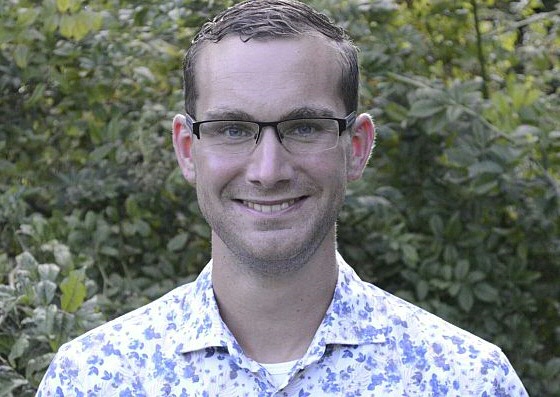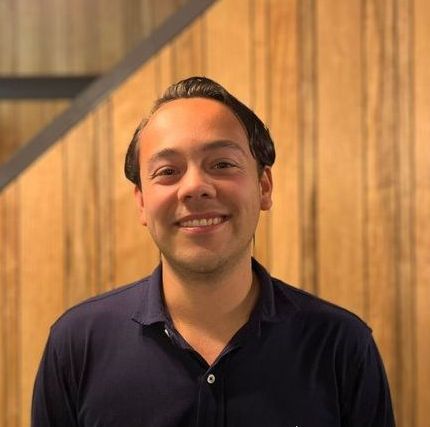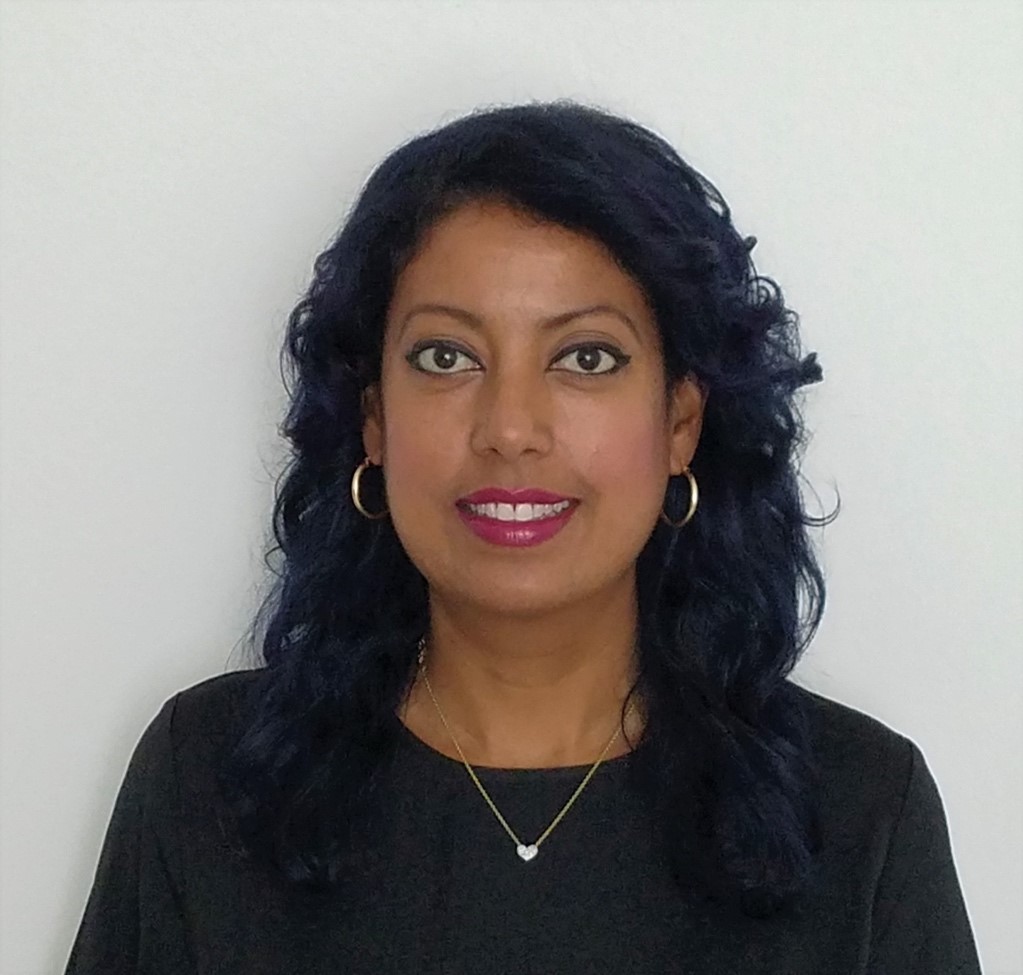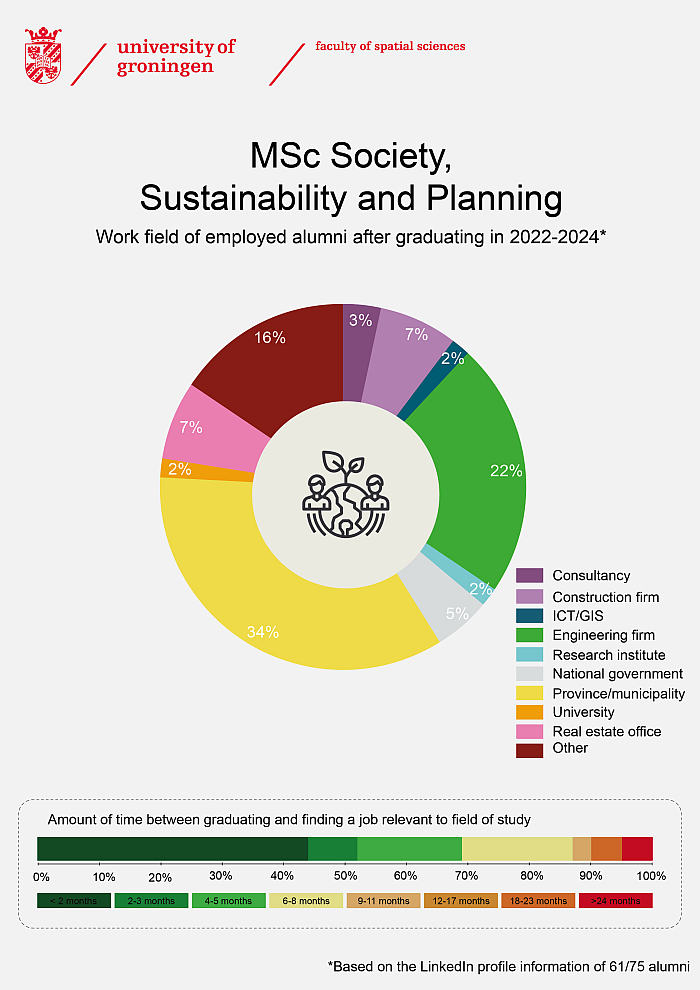
The master programme in Society, Sustainability and Planning centres around understanding the human factor in spatial interventions.
Society, Sustainability and Planning promotes a novel understanding of how to transform the built environment in collaboration with its users. Our courses pay attention to the social, cultural, political, and economic environment in which decision-making on spatial interventions takes place.
The emergence of self-organizing citizen collectives is a critical change in today's societal strive for sustainable places and futures. SSP emphasizes the role of citizens in shaping places. We interrogate why different stakeholders and social groups embrace, contest, or reject spatial changes, and how we can design their surroundings in such a way that it meets their diverse needs. We present spatial justice is a leading principle to design cities of the future. Moreover, we pay explicit attention to the ways in which spatial planning can contribute to achieving the UN’s sustainable development goals, such as healthy ageing, a clean environment, and eliminating poverty, in collaboration with citizens and civil society actors.
Our programme highlights the social aspects of the global transition towards a more sustainable society. Sustainability challenges are interconnected with the communities that face them. As such, our students learn to adopt new methodological and interactive approaches to problem-solving in different contexts. This exchange does not only take place outside of the classroom, but also within our small-scale, international department.
You learn to analyze, develop and negotiate innovative institutional designs and policy solutions to support and lead complex transformations in light of international sustainability and planning debates. Core of our focus on the human factor in society, sustainability and planning is using real-life cases and working with and engaging people in real-world living labs.
Through this framework, our graduates are able to utilize spatial planning in solving urgent social problems, such as inequality and climate change. Our alumni are critical and engaged consultants and researchers, who are in high demand on the labour market. They are employed by NGOs, consultancies, governments, and businesses.
If you are looking for a two year programme and are interested in doing research, you can also integrate the master with our two year top rated Research Master in Spatial Sciences.
| Semesters | ||||
|---|---|---|---|---|
| CoursesCourse Catalog > | 1a | 1b | 2a | 2b |
| City Matters (5 EC) | ||||
| Interaction, Society and Space (5 EC) | ||||
| Planning Theory (5 EC) | ||||
| Engaging Society in Spatial Transformation (5 EC) | ||||
| Optional courses (10 EC) | ||||
| Master's Thesis Society, Sustainability and Planning (20 EC) | ||||
| Revitalising Neighbourhoods (5 EC) | ||||
| Living Lab Sustainable Places (ID) (5 EC) | ||||
More information can be found at https://www.rug.nl/frw/education/master-info-frw/courses-master-society-sustainability-planning
| Specific requirements | More information |
|---|---|
| previous education |
Access with research university, bachelor degree: Human Geography and Regional and Urban Planning, Spatial Planning and Design, Urban studies, Land Use Planning and Management, Landscape Architecture, Public Administration and Cultural Geography. You might also have access with Urban/Rural Sociology (with a focus on place-space theories and governance), Environmental Management (with a focus on governance/policy/public administration). Environmental Psychology (with a focus on governance/policy/public administration). This will be assessed individually. If you are not directly admissible you can follow a pre-master programme. See more information in the pre-master guide: https://www.rug.nl/frw/education/pre-master/ |
| additional subject |
In order to asses you previous education the Admissions Board requires course descriptions. |
| language test |
English on VWO level or one of the following equivalents:
Overall: 90 Reading: 18 Listening: 18 Speaking: 20 Writing: 21
A prospective student can always apply for an exemption from the English language test. The student needs to explain, and if required show proof of, why an exemption would be justified. It is up to the Admission Board to decide whether an exemption will be granted or not. |
| Study programme | Organization | Transition |
|---|---|---|
| All Universities of applied sciences |
Via a pre-master with a maximum of More information about the pre-master see https://www.rug.nl/frw/education/pre-master/ |
| Study programme | Organization | Transition |
|---|---|---|
| Liberal Arts and Sciences | All Research universities |
Additional requirements More information:Contact study.advice.fss rug.nl for more information about your admission |
| Human Geography and Planning | All Research universities | No additional requirements |
| Spatial Planning and Design | All Research universities | No additional requirements |
| Type of student | Deadline | Start course |
|---|---|---|
| Dutch students | 15 August 2025 | 01 September 2025 |
| 15 January 2026 | 01 February 2026 | |
| 15 August 2026 | 01 September 2026 | |
| EU/EEA students | 01 November 2025 | 01 February 2026 |
| 01 May 2026 | 01 September 2026 | |
| 01 November 2026 | 01 February 2027 | |
| non-EU/EEA students | 01 November 2025 | 01 February 2026 |
| 01 May 2026 | 01 September 2026 | |
| 01 November 2026 | 01 February 2027 |
If you are considering applying for a start in February, please know that this has practical implications for your studies. We advise a start in September as the programme is better suited for a September start. Before applying for a February start in our programme and paying the application fee for students with a foreign diploma, we advise you to discuss your application with one of our Study Advisors (study.advice.fss rug.nl)
| Specific requirements | More information |
|---|---|
| previous education |
Holders of a certificate from the Bachelor's degree programme in Human Geography and Planning (Sociale Geografie & Planologie) or Spatial Planning and Design from a Dutch university are assumed to have sufficient knowledge and skills and will also be admitted to the degree programme on that basis. Admission is also possible for students that have completed the 1st year of a related Double Degree programme at the partner university. Furthermore, access with research university Bachelor's degree: Human Geography and Regional and Urban Planning, Spatial Planning and Design, Urban Studies, Land Use Planning and Management, and Cultural Geography. You might also have access with Urban/Rural Sociology (with a focus on place-space theories and governance), Urban Management (with a focus on spatial development/communities/public policy), Environmental Management (with a focus on governance/policy/public administration), Sustainability Sciences and Sustainability Studies (with a focus on spatial governance/spatial transformation), Environmental Psychology (with a focus on governance/policy/public administration), and Public Administration (with a focus on spatial governance/spatial policy). This will be assessed individually. If you are not directly admissible you can follow a pre-master programme. See more information in the pre-master guide: hhttps://www.rug.nl/frw/education/pre-master/ |
| additional subject |
In order to assess you previous education the Admissions Board requires course descriptions. |
| language test |
English on VWO level or one of the following equivalents:
Overall: 90 Reading: 18 Listening: 18 Speaking: 20 Writing: 21
A prospective student can always apply for an exemption from the English language test. The student needs to explain, and if required show proof of, why an exemption would be justified. It is up to the Admission Board to decide whether an exemption will be granted or not. |
| Type of student | Deadline | Start course |
|---|---|---|
| Dutch students | 15 August 2025 | 01 September 2025 |
| 15 January 2026 | 01 February 2026 | |
| 15 August 2026 | 01 September 2026 | |
| EU/EEA students | 01 November 2025 | 01 February 2026 |
| 01 May 2026 | 01 September 2026 | |
| 01 November 2026 | 01 February 2027 | |
| non-EU/EEA students | 01 November 2025 | 01 February 2026 |
| 01 May 2026 | 01 September 2026 | |
| 01 November 2026 | 01 February 2027 |
If you are considering applying for a start in February, please know that this has practical implications for your studies. We advise a start in September as the programme is better suited for a September start. Before applying for a February start in our programme and paying the application fee for students with a foreign diploma, we advise you to discuss your application with one of our Study Advisors (study.advice.fss rug.nl)
| Nationality | Year | Fee | Programme form |
|---|---|---|---|
| EU/EEA | 2025-2026 | € 2601 | full-time |
| non-EU/EEA | 2025-2026 | € 21400 | full-time |
Scholarships: Check the Nuffic website for information about scholarships.
Students are expected to follow our Bring Your Own Device (BYOD) policy. For more detailed information about laptop requirements, please visit this webpagePractical information for:
Graduates of Society, Sustainability and Planning can start a career in:
We support you in developing a rich set of analytical tools and practical skills that allow you to create innovative solutions for just and sustainable cities. Society, Sustainability and Planning makes you a critical (even a little activist) professional who knows how to engage citizens in the major spatial transformations of our times. We do so in various ways:
1. Strategic partnerships with organizations in planning
practice: the City of Groningen, several municipalities in the
north of the Netherlands, several housing associations, the
PeerGroup.
2. Guest lectures, international field trips and workshops embedded
in the courses
3. 3x per year 'A day in planning practice', with company
visits
4. Excursions and 'Meet-alumni' events organised by our student
organizations
5. 2x per year the Graduate
Research Day. A networking event to meet future employers
Throughout the year we offer support for practical career preparation and employability skills. Workshops are given about leadership, job interviews and how to present yourself. More information about the FSS Career Services.
See where our alumni end up in this graphic!
The MSc Society, Sustainability and Planning (SSP) program follows the research agenda of the Department of Spatial Planning and Environment as well as the Faculty of Spatial Sciences in more general. This research agenda focuses on the relationships between wellbeing of people (with different identity markers, backgrounds, values, wishes), institutional innovation (improved governance and policy making), and spatial transformation (changing landscapes, cities and regions).
The emphasis in Society, Sustainability and Planning related research lies on the social side of planning. ‘Ordinary’ people and local communities are often neglected by planners and the focus tends to be more dominantly on policy, governance, strategic planning and legal frameworks. Research conducted by researchers active in Socio-Spatial Planning program aims to understand the ‘HUMAN FACTOR’' in spatial planning: why different groups of people embrace, contest or reject spatial changes? how do they take the lead in shaping their own environment and how to align such initiatives with more formal plan- and policy-making? how do spatial interventions influence different stakeholders and their well-being? and how to engage society effectively in spatial transformations?
The core ambitions of the research that informs the teaching program of Master SSP are to:
Some examples of recent research topics of the researchers closely connected to the program of Socio-Spatial Planning include:
The articles written on the above topics by the staff members are often used as direct input for lectures and as key literature for the core courses. The Department also facilitates connecting Master thesis research to the ongoing research of staff members.

The motivation why I choose for the masters Society, Sustainability and Planning (SSP) & Environmental & Infrastructure Planning (EIP) was to understand and counteract the, in my view, planning and design processes that enforce personal examples of injustice and inequality in the spatial domain. I am interested in giving all actors a voice and the instruments or tools to make the physical environment better for its users.
The different courses of the masters taught me different theoretical and practical lenses of which I am still grateful of and apply in my personal and working life.
At the moment I work as a consultant Smart Cities & Smart Mobility for the Dutch Ministry of Infrastructure and Water Management. What is interesting is that I am most of the time busy with making connections between people and programme’s. I believe that both masters enabled me to do so because you get to know how the process of spatial planning works and you are aware of the content with in-depth knowledge about sustainability, planning and stakeholder involvement. This may seem a bit odd, but in my experience it appears to be a critical power and unique selling point. Most of my colleagues do not have such a background and are not always fully informed about the spatial consequences of their actions. A glimpse of programme’s I work on: 5G-Blueprint, a public-private ecosystem for smart and sustainable urban development and the Dutch National Mobility Vision 2050.
Besides, I started right after my master the company VRX which specialises in using (Immersive) Virtual Reality (IVR) for co-creative spatial planning and design. VRX produces virtual environments where citizens can experience how for instance a playground can look like based on different scenario’s. During design sessions with IVR we ask them to give their view on the scenario’s so we are able to improve the scenario’s while working towards a final design.
The important thing about both masters is that they provide you with a fruitful and professional knowledge base. After you finish your master you can work in different working fields, for different organisations and connect them to each other (energy, water, transport, housing, nature). I hope my personal experience after study and two years working underlines this and provides an (prospective) example for people interested in either or both masters.
- Roy Boertien

In June 2022, I obtained my bachelor degree in Human Geography and Planning at the University of Groningen. During my time as a bachelor student, I figured out that my interests in Planning are within the social aspects and how we can make neighborhoods and therefore cities more and more sustainable. Therefore, in September 2022, I started with the Master's program in Society, Sustainability and Planning at the University of Groningen, and it has been a thoroughly enjoyable experience since.
During the course of the program, I have had the opportunity to study interesting topics such as how to maximize the livability in neighborhoods, how to cope with the urge of cities becoming more sustainable and the opportunity to follow courses outside of this master´s program. So far, I can conclude that the program has been well-structured and all courses have been carefully designed to help me gain a comprehensive understanding of the complexities of the matters at hand. From discussions, lectures and the projects, I gained insight into the theories and practices that lay under the surface of society, sustainability and planning. The professors at the university are extremely knowledgeable about the subject matter, and their guidance was valuable to develop a comprehensive understanding of all the topics.
Overall, I am satisfied with my decision to pursue the Master’s program in Society, Sustainability and Planning at the University of Groningen. It has so far been an invaluable experience, and I would definitely recommend it to anyone who is looking to deepen their knowledge on these topics.
- Giovanni Kiewiet

As an advocate for public transport in a car dependent island, my hometown Puerto Rico, I came to Groningen looking for a degree that would offer a view into a change of planning paradigm. The Master Socio-Spatial Planning has certainly offered me such an opportunity, starting with the complexity theory in the Planning Theory course and the validation of the sociological knowledge addressing the unequal power relations that generate social injustice through the planning practice in City Matters.
Also, the study of Dutch planning tradition and the inclusion of civic society in the design of public policies in Engaging Society for Spatial Transformation and Revitalizing Neighbourhoods courses has been very insightful.
The many workshops and excursion to various infrastructure projects in and out of the Netherlands has also been an eye opener into the many possibilities to consider as we create better living spaces.

This infographic shows in which workfield alumni of the master's programme ended up, and is based on alumni who graduated between 2022 and 2024. As is visible, the majority of the alumni have found a job relevant to their field of study within 6 months since graduating.